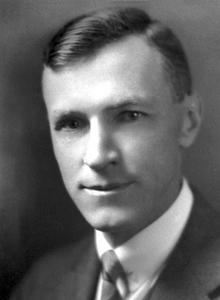
William Perry Murphy, University of Oregon shared the 1934 Nobel Prize for Medicine
In 1934, William Perry Murphy, who shared the Nobel Prize for Medicine for discoveries concerning liver therapy in cases of anaemia, was born in Stoughton, Wisconsin. Perry shared the Nobel Prize with George Richards Minot and George Hoyt Whipple for their combined work in devising and treating macrocytic anemia.
Parry was educated at public schools in Wisconsin and Oregon, and at the University of Oregon, where he took his A.B. degree in 1914, and M.D. in 1922 from Harvard Medical School.
Anemia, or blood deficiency, means that the amount of red blood cells in the blood is too low. After George Whipple showed that the formation of blood cells among dogs was stimulated by a diet rich in liver, in 1926 William Murphy and George Minot adapted this finding for people with the serious illness of pernicious anemia. If patients ate abundant amounts of liver daily, their condition improved. This also shed light on the cause of pernicious anemia, a shortage of a substance that later proved to be vitamin B12, which is found in liver.
Tags:
Source: Nobel Foundation
Credit: Photo: Courtesy The Nobel Foundation.
